As a cloud engineer, you have the very important role of being the main person in charge of a company's data. Companies have to hire responsible and trustworthy people to this position which is why the hiring process is very rigorous. To impress the hiring manager, you need to have an impressive resume and we can help you do that. So, read on for our guide to creating the best resume as a cloud engineer.
Or if you would like us to create your resume for you, use our completely free resume builder.
A cloud engineer resume template
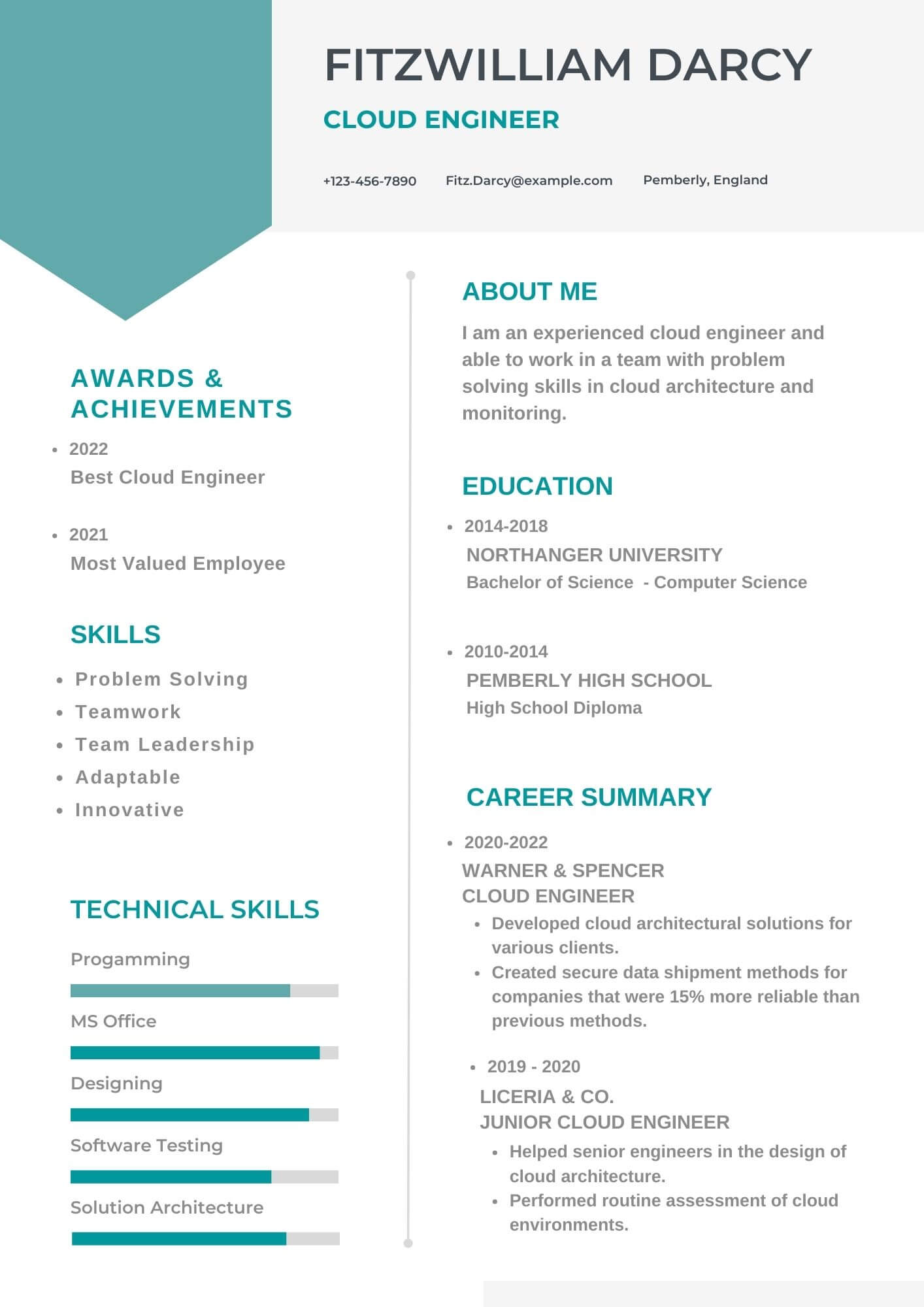
Like many professions, cloud engineers will find the reverse-chronological resume format the best format for your resume. This is because the reverse-chronological format shows your most recent experience first and works backwards, so your most impressive achievements are front and center.
Use a professional format with plenty of white space so that your resume is neat and clearly legible.
Contact Details

Your contact details should be clearly visible. One way to do that is to include them at the top of your resume so that it becomes the first thing that recruiters see. You should indicate your name, the position that you are applying for e.g. cloud engineer. In addition, you should also include your phone number, email address and mailing address in city/state format. You can also include a link to a professional profile such as LinkedIn if you want.
Resume Summary
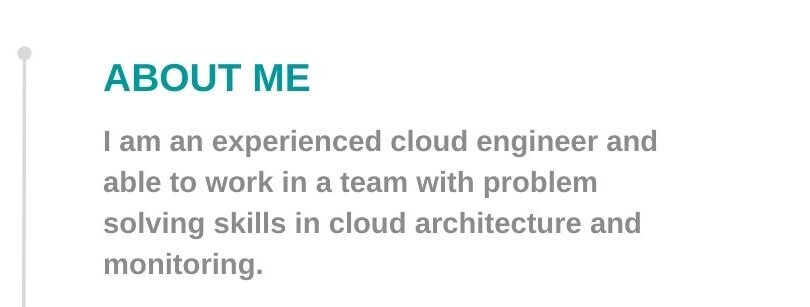
A resume summary is two or three short sentences detailing the highlights of your career. If you are a fresh graduate, you should add a resume objective that indicates your plans for your career. This is a good area to market yourself as a valuable member to a prospective company.
Work Experience
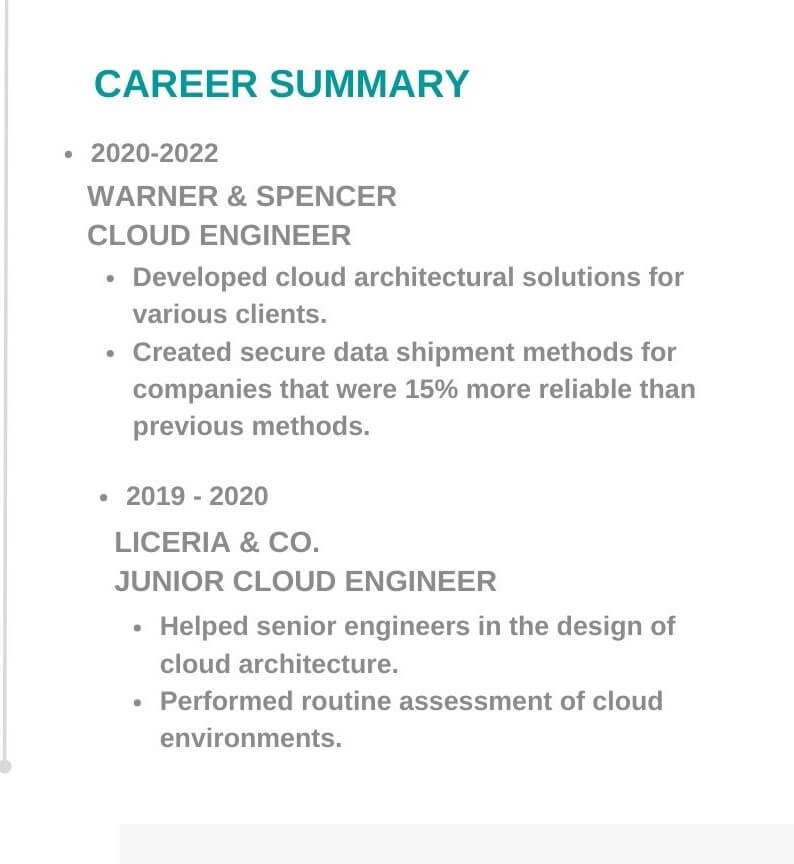
Your work experience is your chance to shine and prove that you are a better choice than other candidates. You should add the company that you worked for, how long you worked there and the position that you held. You should also add two to three bullet points for each workplace detailing your responsibilities or significant achievements, in a quantifiable form if possible. Try to avoid buzzwords that could cause the HR manager to have a negative impression of your resume.
Not sure what buzzwords are or how to identify them? Use the Cresuma buzzword finder to erase buzzwords from your resume.
Education
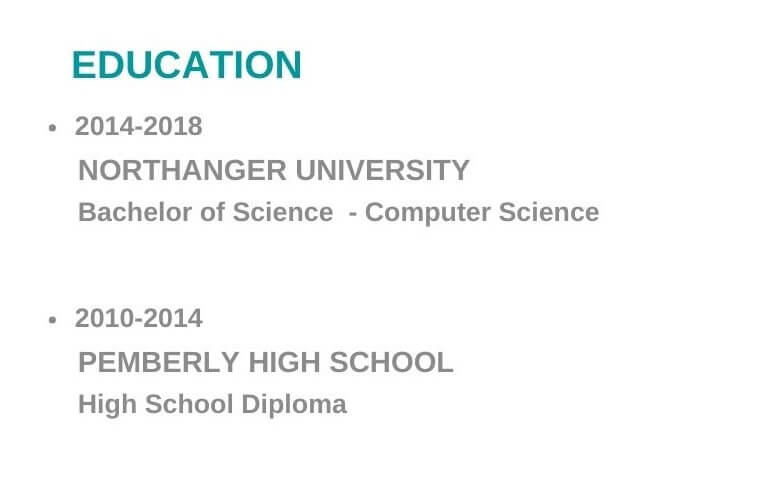
Your education is important as it shows companies that you have been taught the basics of your field and have the technical knowledge to prove your skills. You should include your educational institution, the degree you received and how long you studied in your resume. If you have a high G.P.A. or have studied a course that was indicated in the job listing but don't have the experience for, you should include them here, if you wish.
Skills
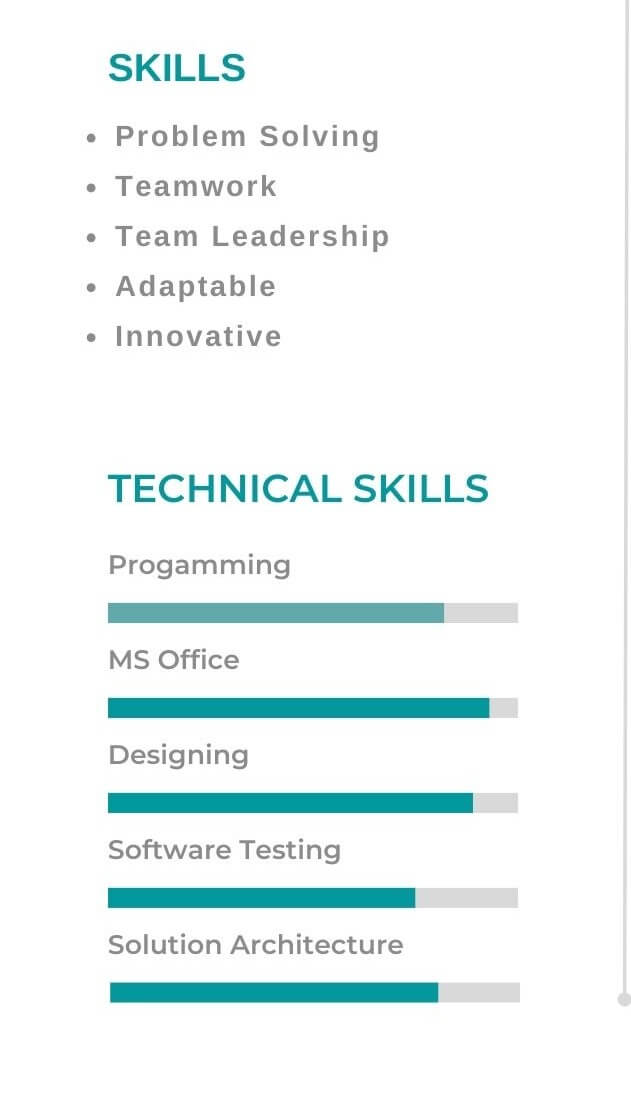
Your skills play an important role in deciding whether you are considered for a position or not. You should include a mixture of hard and soft skills into your resume so that HR managers can get a clear image of what your talents are. You can have it in a mixed list or as two separate sections, like in the example above. Try to use keywords in this section that will help you to pass ATS screening.
Not sure what keywords to use? Try our keyword finder and don't stress about it.
Additional Sections
Your resume should be only one to two pages long but sometimes you might find that you have more space. You should include these optional sections to your resume to make your resume stand out.
Languages
Speaking more than one language can be an asset, especially if you are applying to work in a foreign country. Indicate the language you speak and your level of fluency in this section of your resume.
Awards and achievements

Any awards or special achievements that you have received in your career can be added here. This can be a real boost to your resume as they show that you have been recognized for your work. You need to mention your award and the year you received it in this section.
Hobbies and Interests
This section can be used if you feel that you don't have enough information in your resume. But you need to make sure that you mention only relevant interests that have an impact on your profession.
Now that that's out of the way, try our career guides blog for more resume help. Or see our resume samples page for more great resume ideas.

